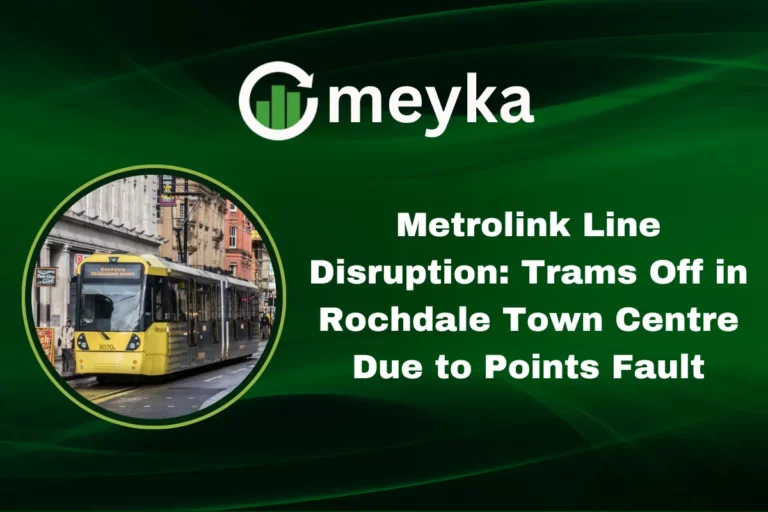BlackBuck CEO Exit Sparks Bengaluru Road Deadline Push
India’s logistics sector is at a turning point. BlackBuck, one of the country’s largest digital freight platforms, has been in the spotlight after its CEO stepped down. The news came as Bengaluru, India’s tech capital, faced a strict deadline for major road projects. Both events may seem different, but they connect in a surprising way. Roads are the lifeline of logistics. Without smooth infrastructure, platforms like BlackBuck cannot deliver on time or scale operations.
When a leader leaves at such a moment, questions grow. Can the company keep its pace? Will investors and clients stay confident? As users of these roads and services, we all feel the impact. It’s not just about one company or one city. It’s about how leadership, technology, and public projects work together.
Let’s what this CEO exit means, why Bengaluru’s road push matters, and how the two shape the future of freight in India.
BlackBuck at a Glance
BlackBuck is a major player in India’s freight tech space. The company runs a platform linking shippers with truckers. It also handles payments and logistics data. Based in Bengaluru, BlackBuck has been for years one of the startups defining digital freight movement in India. Its growth has matched the rising demand for fast and efficient goods transport, especially with e-commerce and just-in-time supply chains.
The company has often cited infrastructure as a key challenge. Roads, traffic, and transit times directly affect its operations. When trucks are delayed, costs rise. When employee commutes stretch, morale suffers. Bengaluru’s Outer Ring Road (ORR) region, especially Bellandur, has become a symbol of these infrastructure problems.
What Happened with the CEO & Office Move?
Rajesh Yabaji, co-founder and CEO of BlackBuck, announced that the company would leave its office in Bellandur on the ORR after nine years. The reasons were clear. Yabaji pointed to heavy traffic congestion, long commute times (often over 1.5 hours one way), and roads full of potholes. He expressed that the conditions are unlikely to improve in the near future.

BlackBuck also clarified that it is not quitting Bengaluru entirely. It intends to relocate to another part of the city. The move is only from Bellandur.
Bengaluru Road Deadline Push Explained
Shortly after BlackBuck’s exit announcement, the Karnataka government took notice. Deputy Chief Minister D.K. Shivakumar set a deadline: by November, all potholes in Bengaluru must be fixed. Contractors have been told to act fast. The Greater Bengaluru Authority (GBA) is tasked with ensuring smooth traffic and safe roads.
The government has allocated ₹1,100 crore for repairing and building roads across Bengaluru. They also ordered that where work is ongoing, there must be no water stagnation and that potholes do not reappear after asphalting.
The ORR and Bellandur remain key areas of concern. These corridors are densely populated with tech companies and offices. Many teams and workers pass through the ORR daily. The poor state of roads has become more than a nuisance; it is now a business risk.
Impact on BlackBuck’s Operations
The exit from Bellandur hits BlackBuck in multiple ways. Employee commutes will likely improve once the new location is finalized. Reduced travel time can help with motivation and productivity. Also, fewer hours lost in traffic may reduce transport-related costs.
However, shifting offices also adds costs. Relocation means setting up new infrastructure, possibly higher rents, and dealing with change management. It also sends a strong message to other firms: infrastructure deficits can influence where companies locate or remain.
Clients and partners may see this as a sign that BlackBuck cares about staff welfare. But they may also worry about instability or delays tied to such disruptions.
Industry & Investor Sentiment
BlackBuck’s statement has stirred both concern and support. Prominent technologists and investors, including former Infosys CFO Mohandas, have criticized the government’s inaction on basic infrastructure. Some believe this could trigger a larger exodus of firms from ORR unless things improve.
Meanwhile, competitors and other logistics startups watch closely. If BlackBuck manages the transition well, it may maintain its edge. But if the move causes service disruptions or cost overruns, rivals may try to exploit that gap.
Investors may also see this as a test of how startups can push back against public infrastructure failures. Good governance, transparency, and city-business cooperation will matter more.
Governance, Strategy & Future Roadmap
The episode underscores the need for better governance at the city level. Officials must be held accountable. Civic bodies need to deliver more than pledges. They need detailed timelines, execution, and quality checks.
BlackBuck will likely use this moment to revisit location strategy. The company may seek sites with better road access, lower traffic congestion, and reliable commuting conditions. It may push for improved public transport links or hybrid office-work models.
Long-term, the ech and logistics sectors require stable infrastructure. Chatting about solutions is not enough. Active investment in roads, drainage, transport, and civic planning is essential.
Broader Lessons for Startups & Infrastructure
Businesses cannot grow without infrastructure. The ORR issue is not unique to Bengaluru but reflects many Indian cities. Startups depend not just on capital or talent but also on reliable power, roads, and transit. Governments need to see firms as partners, not only voters.
For startups, this is also a moment to negotiate with cities. To demand better conditions or risk moving. They must factor infrastructure risk into site selection.
For the public, owning this issue is vital. Poor roads affect everyone, not just tech companies. Safety, health, cost, and time all suffer. When civic infrastructure fails, growth slows.
Bottom Line
BlackBuck’s departure from its Bellandur office is more than a company move. It is a warning flag about infrastructure neglect. Bengaluru has responded with a strong deadline and funding. But promises must turn into pavement, asphalt, and engineered fixes.
Otherwise, more firms may follow BlackBuck’s lead. The future of India’s logistics tech depends not only on innovation and capital but how well cities keep their roads smooth, their traffic flowing, and their foundations ready for growth.
Disclaimer:
The above information is based on current market data, which is subject to change, and does not constitute financial advice. Always do your research.






